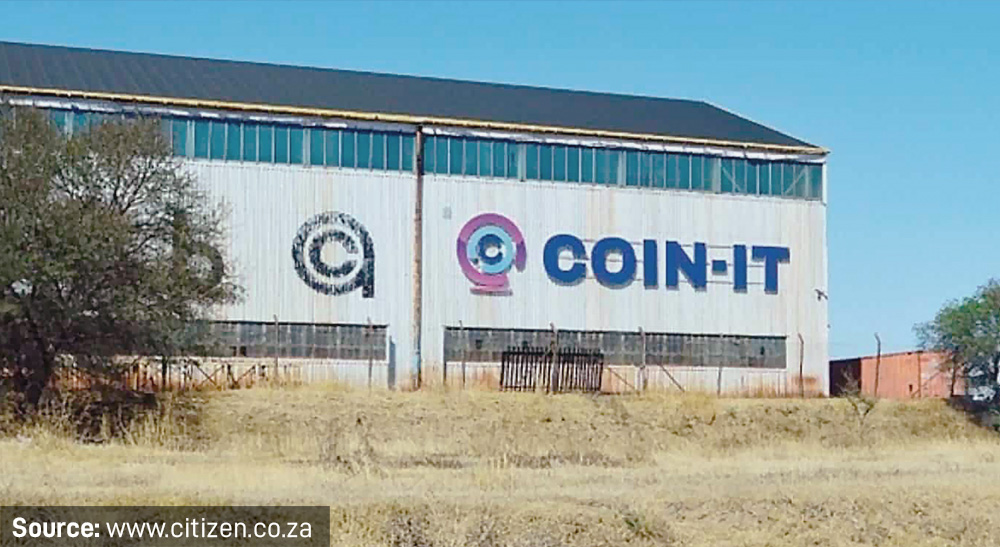Three family members appeared in the Pietermaritzburg Magistrate’s Court this week on charges related to Coin-It Trading, which has been described as a “get rich quick” or “Ponzi” scheme.
Malcolm de Beer (54), his wife Patricia (53), and their daughter Samantha (31) were charged with fraud, with an alternative charge of theft, in the amount of R73.6 million, said Natasha Ramkisson-Kara, the KwaZulu-Natal spokesperson for the National Prosecuting Authority (NPA).
The De Beers were also charged with contravening the FAIS Act and the Banks Act and with money laundering, she said. The State alleges that Coin-It was not an authorised financial services provider, nor was it authorised to accept deposits from investors.
The De Beers were released on bail of R50 000 each. Malcolm and Patricia surrendered their passports and were advised to contact the investigating officer if they wanted to travel, Ramkisson-Kara said.
The matter was postponed to 19 March for discovery and will be transferred to the Specialised Commercial Crime Court in Durban.
FSCA investigation
In August 2019, the FSCA launched an investigation into Coin-It and a related company, Commex Minerals (Pty) Ltd, for suspected breaches of financial sector laws. The Authority warned the public that it suspected the entities were operating fraudulent schemes.
A week before the FSCA announced its investigation, Coin It and Commex took out advertisements in major Sunday newspapers.
Coin-It described itself as “an asset management company that focuses on the transport, logistics, and mining sectors”. In a pamphlet inserted in two Sunday papers, Commex advertised its “investment opportunity” as minerals “extracted from the ground, into your pocket” and promised returns of more than 10% a month for 18 months on reselling people’s purchases in dolomite, manganese, coal, and iron ore.
In September 2019, the FSCA executed a search and seizure warrant at Coin-It and Commex’s business premises, a warehouse in Dundee in northern KwaZulu-Natal.
Coin-It had branches in Johannesburg, Vryheid, and Newcastle, while Commex operated in Durban, Johannesburg, and Port Elizabeth.
Promises of unrealistic returns
Coin-It lured clients with promises of returns of as much as 200% within three years.
“Investors” were required to pay a deposit and monthly instalments towards buying a truck, bus, or heavy machinery that would be leased out, with the rentals paid to the “buyer” for a certain time. The “owners” would be paid a sum for a certain number of months until the vehicle was “paid off”, and then they would receive a double payment monthly.
Some of the estimated 3 000 “investors” received a monthly payment or two as promised, but then the money dried up. The scheme crashed between late 2019 and early 2020.
In social media posts, former “investors” alleged that at least three people committed suicide when they did not get their money back.
According to media reports, people used their retirement savings, inheritances, or retrenchment packages – and even borrowed money – to “invest” in Coin-it.
The authorities claim the De Beers used the funds they collected to buy properties, luxury vehicles, and aircraft.
Asset forfeiture
Many media outlets also reported that Coin-It collected more than R4 billion from members of the public, but the liquidators said the amount was closer to R2bn. Coin-It was finally wound up in May 2020.
In May 2021, the High Court in Pietermaritzburg granted the NPA’s Asset Forfeiture Unit (AFU) a forfeiture order in relation to assets R106m belonging to Coin-It and related liquidated business entities. The forfeited property included 11 pieces of land, five aircraft, and motor vehicles.
This forfeiture order followed the granting of a preservation order to freeze the assets in November 2020.
The AFU obtained further preservation orders, in July and August 2021, in relation to assets valued at R48.9m.




